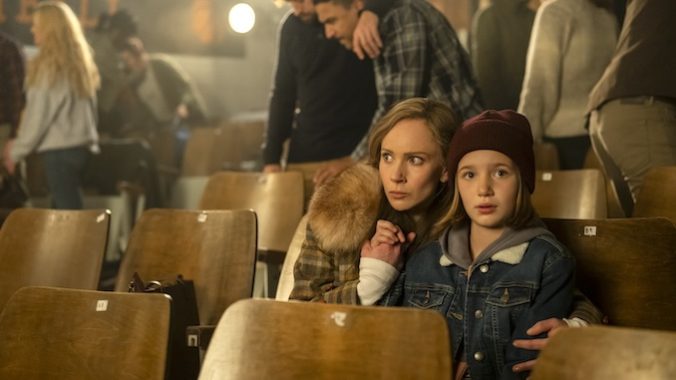Fargo’s Fifth Season Is Extremely Weird, and Very Good
Photo Courtesy of FX
Something bizarre happened in the fourth season of Fargo, way back in 2020—they forgot to write a good story. The cast and the production were top-notch, on a level with the best the series had offered previously (how can a show with Chris Rock and Timothy Olyphant fail?), but the entire plot was a shocking, sprawling bore. Three years and a pandemic have intervened, and with the release of the fifth season this month, the big question was how Noah Hawley and his team would respond (or perhaps recover) from the whiff that came before.
The answer, and the headline, is that they got really weird with it. Even by Fargo standards—in success and failure, this has always been one of TV’s oddest shows—this season gets to a strange place quickly and stays there, unbothered, for the entire run of the six episodes made available to critics. If the quintessential theme of Fargo, starting with the Coen Brothers’ masterpiece, is the darkness of man juxtaposed with the exaggerated “niceness” and simplicity of midwestern America, the two oppositional aspects setting each other off in vibrant relief, here we spend less time than ever on surface appearances before reaching the dark underbelly… which we see immediately in a vicious brawl at a PTA meeting.
All of this, somehow, works.
A small example of the oddities we encounter: we’re inundated with Minnesota accents at the start, as you would expect, but when we meet Lorraine, the matriarch of the Lyon family, she is played by Jennifer Jason Leigh with a voice that sounds like the female version of a villainous east coast robber baron from the 1890s, perhaps with a slight British affectation. There is not, as far as I can tell, a lick of Midwestern in it, nor is there any explanation for why she speaks this way when everyone around her, including her softie son, is about as aw-shucks Minnesota as they come.
Briefly, it feels like Lorraine will be the show’s dominant figure, but if you make that mistake as I did, it’s because you overlooked her daughter-in-law Dorothy Lyon (yes, there are more than a few Wizard of Oz references here). She’s a prim-and-prop Midwestern mama to all appearances, despite some trouble at the outset, until suddenly she’s not. To say more would be to spoil what is a very intriguing plot, so I’ll say instead that Juno Temple is spectacular as Dorothy, and by spectacular I mean “convincingly sociopathic,” with both her surface propriety and her shocking facility with the dark arts serving to paint the picture of a woman whose psychology is resilient, mysterious, and pretty terrifying.
-

-

-

-

-

-

-

-

-

-

-

-

-

-

-

-

-

-

-

-

-

-

-

-

-

-

-

-

-

-

-

-

-

-

-

-

-

-

-

-








































